Rewilding Europe warmly welcomes five new members to the European Rewilding Network. These new members are rewilding initiatives in Austria/Germany, Greece, Belarus, the former Yugoslav Republic of Macedonia, and Ukraine. Since its launch at WILD10 Salamanca in October 2013, the network doubled in size and is now counting 48 members from 23 European countries.
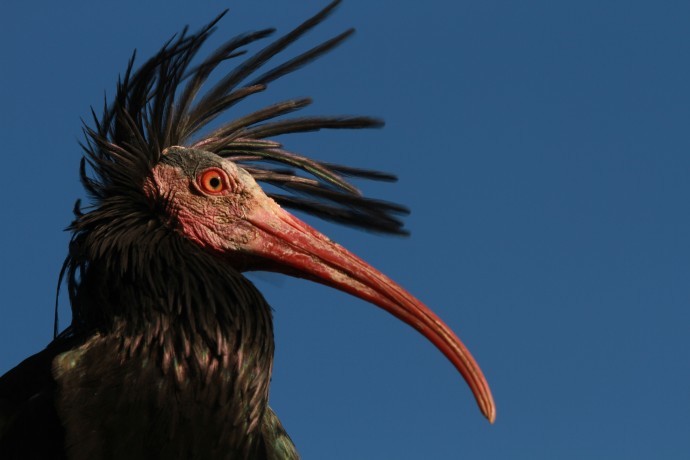
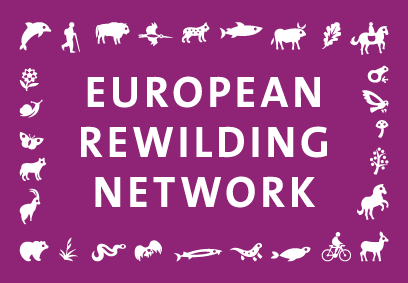 Most of these five new members come from countries that are new to the European Rewilding Network (ERN), which we very much welcome as it brings new dimensions and broadens the current scope. We are sure that their work is of great interest to the other members and that they will be inspired to be part of the network. The five new members are briefly described below.
Most of these five new members come from countries that are new to the European Rewilding Network (ERN), which we very much welcome as it brings new dimensions and broadens the current scope. We are sure that their work is of great interest to the other members and that they will be inspired to be part of the network. The five new members are briefly described below.
Bringing back the Northern Bald ibis to Europe
On the border of Austria and Germany, the LIFE+ project ‘Reason for Hope’ is working hard to return the migrating Northern Bald ibis population to the European continent. The Northern Bald ibis is one of the most endangered migratory bird species worldwide and is marked as critically endangered by IUCN. Within a timeframe of 5 years, the goal is to release at least 120 captive-bred birds and train them by using a microlight plane to migrate between breeding sites in the Northern Alps and their main wintering area in Tuscany, Italy.
Restoring marine life on Greek islands
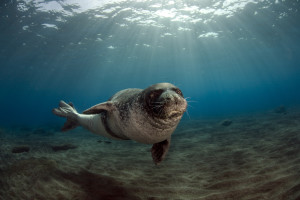
Set in the backdrop of the Greek islands Kalamos and Kastos, NGO Terra Sylvestris is working together with the local community to promote and help achieve sustainable development through rewilding. The islands and surroundings are part of a marine protected area, and harbour iconic marine megafauna like endangered monk seals, dolphins, whales and loggerhead turtles. Terra Sylvestris aims to halt the increased pressure on the marine environment and restore the biodiversity and ecological relationships in the marine protected area. Goals include the creation of no-take zones and a compensation system for damages caused by marine mammals to fishermen’s nets, restoring and managing marine fauna and especially wild fish stocks sustainably and progressively phasing out completely all aquaculture activity inside the marine protected area and in a peripheral zone surrounding it using legal means. Furthermore, the project is creating novel ways of making a living for the local community by providing alternatives to reduce the pressure on land and sea through carefully planned organic agriculture and development of nature based tourism.
Creating a wildlife hotspot in Naliboksky Forest, Belarus
Some 70 kilometres west of Minsk, Belarus, lies a huge mixed-forest area intertwined with mires, meadows and small rivers. The wildlife of Naliboksky Forest is of a wide variety: European bison, elk, red deer, wolf, lynx, and beaver. Within this wildlife hotspot of nearly 90,000 hectares, plans are set to include wild-living herds of Tauros and and horses that will contribute to the ecological functioning of this ecosystem. Furthermore, nature-based tourism is developing in a positive direction with already operational wildlife watching and ecotourism businesses.
Promoting nature-based tourism in Western Balkans , The former Yugoslav Republic of Macedonia
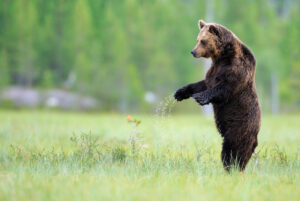
Earlier this year, the Western Balkans Geotourism Network from The former Yugoslav Republic of Macedonia started a project that aims to support the development of sustainable, nature-based tourism. By working with local tourism businesses, community groups and the National Parks the project is developing new tourism offers for small groups to join the park rangers and take part in conservation activities under their direction. The project will help the parks to better manage tourism, limit the impact of visitors to the environment, and help them and local communities to generate an income from sustainable tourism. This ’voluntourism’ brings a new value to the region and allows National Parks to fund habitat conservation and restocking of prey species like deer and chamois in breeding centres.
Natural grazing in Nature Park Beremytske, Ukraine
The most eastern ERN member, Nature park Beremytske in Ukraine, is one of the first rewilding initiatives in the country. The project site includes 30 hectares of abandoned agricultural land and 20 hectares of forest where steps are underway to start natural grazing with wild-living horses and bovines. Anton Nelip, Director of the Foundation ‘Beremytske Biosphere’, stated; “We were inspired by different rewilding initiatives in Europe in which people started bringing back nature to abandoned areas.” Here, abandoned agricultural land will become a home to large herbivores that will restore natural grazing as a key ecological process.
The European Rewilding Network
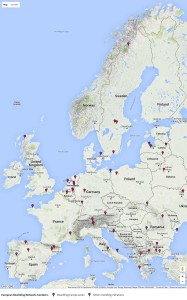
The European Rewilding Network is a living network, connecting many rewilding initiatives in Europe with the goal to promote rewilding as a conservation tool, through sharing experiences, knowledge and inspiration. Currently, most members are involved in activities related to for example large-scale rehabilitation of natural processes in different habitats (like rivers, forests, mosaic landscapes), enterprise development contributing to rewilding, and reintroduction of locally extinct or rare key wildlife species.
The European Rewilding Network, excluding Rewilding Europe’s nine rewilding areas, now covers 1,2 million hectares of rewilding sites and initiatives throughout Europe. From the North-West Highlands of Scotland to the Ionian Islands in Western Greece. Check out how your initiative can also join this growing and active network at www.rewildingeurope.com/european-rewilding-network/.
